Graham Reid | | 12 min read
Derek Trucks: Down Don't Bother Me
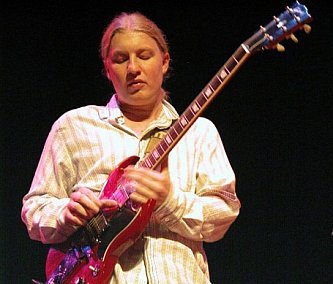
For
someone yet to hit 30, the Jacksonville, Florida-based singer-guitarist Derek
Trucks has achieved a lot. But then, he was almost born to it. His uncle is
drummer Butch Trucks of the Allman Brothers Band; he was named after Eric
Clapton’s pseudonym in Derek and the Dominos; and these days he is married to
acclaimed blues singer Susan Tedeschi.
Those
factors alone don’t guarantee anything in the music business, but Trucks has
got to the top -- his recent album Already Free debuted at number one the
US blues chart, number four on the rock charts and 19 on the main chart last
month -- on the back of his own exceptional talent.
Something
of a child prodigy, he started sitting in with the Allman Brothers when he was
10 and became a full member when he was 19. He’d formed his own band at 15 and played with Bob Dylan at that time; in 2006 got a call from Eric Clapton who
invited him to join himself and JJ Cale on sessions which became their Road
to Escondido album, and he made the cover of Rolling Stone in their
100 Top Guitarists of All Time issue in 2007. He was the youngest there.
In
addition to appearing on four albums by the Allman Brothers, he has recorded
with Gregg Allman on a solo album, with Bela Fleck and the Flecktones, Buddy
Guy, David Sanborn, Elvin Bishop, Tedeschi . . . And he has toured with
Clapton, Carlos Santana . . .
A
master slide guitarist, Trucks is a direct inheritor of the tradition which
runs through Robert Johnson, Elmore James, Duane Allman, Lowell George, Bonnie Raitt and Ry Cooder.
At
one point Trucks was playing in four separate bands, and John Mayer says Truck’s
signature style is “making the guitar sound like a female singer from the
Fifties or Sixties, just belting out”.
But
there is more: he also plays sarod (an Indian instrument) and dobro, has
investigated world music (his last album Songlines featured a piece
written by the late Sufi singer Nusrat Fateh Ali Khan),he has studied the music
of jazz giants John Coltrane and Sun Ra . . .
And
so much more. Oh, there’s a Grammy nomination somewhere in there too.
Not
even 30, but let’s allow the very polite and personable Derek Trucks speak for
himself . . .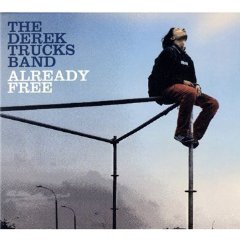
So
Derek, aside from doing interviews about Already Free, are you touring
also?
We’re
on the road right now doing some support behind the record but the last few
days have been radio interviews with the full band playing in studios which has
been fun. But this has been a change of pace for us because although we’ve done
records in the past this is the one that has been accepted so early on.
Why
do you think people are getting behind this album in a way they might not have
got behind Songlines?
I
think a lot of it is just timing.. We’ve been on the road a long time as a band
and of course I’ve been out a long time personally. And between Songlines
and now a lot has happened: there was the Clapton tour, there was mainstream
press about me here and there.
You
just have to keep plugging away until a window opens and when it does you have
to be prepared to jump through it. All the work until this point is finally
lining up and I feel this album is the most personal as a group and our most
mature record. We’ve explored a lot of different things on other records but on
this one I feel there is a real cohesive band sound.
Songlines sketched out a lot
of diverse territory, but Already Free pulls it together in a secure and
solid place.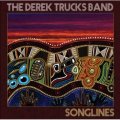
Yes,
and I think the maturing as musicians and as a band in the studio has happened.
The other records were just snapshots in time and there are times as a musician
you just want to explore and be as schizophrenic musically as you want to be.
Then there are other times when you distil down to a sound that is your own.
This album is a new chapter for us.
And
me and my wife built a studio together behind our home and that was a huge part
of it too, creating a space where we could really take our time and do it the
way we wanted. We travel so much and have two young kids so it’s also really
nice to wake up with your wife then drive your kids to school and then go to
the studio with musicians you are really close to. I think that makes it a very
relaxed and comfortable record.
I
imagine it must be bewildering for your kids to be driven to school having
spent much of their life on the road.
Yeah,
that true. My kids are constantly surrounded by family like my mum and dad and
brother, but when me and my wife get home together I notice they sleep longer
and are more relaxed. Taking them to school was fascinating because sometimes
on the road the schedule is upside down, up until 4.30am or 5am.
Let
me ask you about your schooling, because you were mostly on the road as I
understand it.
Up
until the 10th grade I was just going to local public school but I’d
be away weekends and maybe miss a few days here and there for certain gigs. For
the most part it was a balancing act and for the last two years I was
home-schooled because at that point it was really starting to take off.
You
mentioned family before and it’s impossible to talk to you without mentioning
family, but I’ve noticed you have been quoted going past the association with
your uncle Butch but crediting your parents who were very formative musically.
What
they brought was their respect and their ears. They were really passionate
about music and when I heard my dad talking about seeing Duane Allman live, or
seeing BB King just playing one note and laying the crowd out, or crying when
he heard Ray Charles sing . . . Seeing your parents moved by music was very
formative. Going to a great concert was like church for my dad.
The
reverence for the art form and respect for the musicianship was important. My
father has a very low tolerance for bullshit when it comes to music, that
really rubbed off on me too. If he thought something wasn’t legit there was no
wriggle room.
You
were playing from such an early age, did you start before you were old enough
to know any fear or nervousness?
There
was a little stage-fright in the beginning because I’m kind of a reserved
personality to begin with, but as far fear of jumping on stage with people,
probably not. Had I known better about playing with certain musicians, I didn’t
think about it which was probably a positive. And when you are 9 or 10 nothing
seems impossible, you just go for it.
Also
attempting John Coltrane covers and trying to scale those mountains, if I’d
maybe started later in life that would have been more daunting.
The
fact you explored jazz and Indian or Pakistani music -- aside from the
improvisational qualities in both -- does seem slightly unusual for a blues
musician. Where does that come from?
I
was lucky to run into the right musicians at the right time and I was playing
with this band called Colonel Bruce Hampton and the Aquarium Rescue Unit. I was
maybe 12 or 13 when I first played with them and I remember that first show I
saw it was like a lightning bolt and I saw there were other possibilities.
I’d
been playing with blues bands but seeing them . . . They were just virtuosos
and I saw other possibilities and I became friends with most of the guys in
that group and all of them ended up being great teachers along the way.
They
were turning me on to things: the drummer turned me on to Ali Akbar Khan and
Nusrat Fateh Ali Khan, and hearing that at 14 just opened up my head to other
things.
Colonel
Bruce Hampton turned me on to John Coltrane and Sun Ra and Son House and early
blues stuff. They seemed to always be there with the right inspiration at the
right time, and that was a huge help.
At
16 most kids rebel against their parents: did you ever say ‘to hell with this
Mom, I wanna be a cost accountant’?
I
think that’s when I really made the turn from just playing music because it was
natural and felt right and kinda easy to do, but realising that if this is what
I was going to do I needed to dig and really learn.
The
rebellion was maybe against people coming out to shows because of the novelty
of a young kid and the connection to the Allman Brothers, the blues scene that
latched onto it.
I
stopped listening to any guitar players for a while and really tried to
separate myself from the whole Allman Brothers connection and playing more
instrumental and avant-garde music and pushing it as far as I could at that
time. That was probably the rebellion which in the end helped my playing
because I listened to things which I
might not have otherwise.
All
this stuff you listen to at some intuitive level you bring when you go on stage
now.
I
think it is really important the music you put in your head when you are a
musician. If you are an athlete you have to be careful what you put in your
body and I think it’s the same with music. I notice I’ll be playing and a
melody will come out and I’ll recognise it and later it will dawn on me it was
on a record I listened to five years ago which has been slowly seeping out.
So
if you listen to a lot of lightweight music done for the wrong reasons that has
to have an effect on you as a musician. It’s important to fill your head with
ideas that carry some weight.
I
saw Jeff Beck play recently and every now and again you could hear him quote
something, and sometimes in a very amusing way.
A
lot of the great jazz players do that quite a bit, it’s almost a little game.
There was great bebop group in the Fifties where the musicians were so versed
they could have joking conversations musically with just song titles. If you
know enough tunes and are proficient enough you can have a lot of fun up there.
You
have been doing astonishingly well these past few years, you were playing
simultaneously in three bands: your own, with the Allmans and with Eric
Clapton.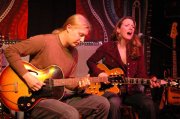
And
it actually turned out to be four band because me and my wife Susan (right) put together Soul
Stew Revival while we were touring in the summertime. It turned out to be a
pretty chaotic year.
I’m
interested to know this: when you walk on stage with Eric Clapton do you
consciously think, ‘Right, I’m with Eric now so some stuff I might do can’t
make its appearance here’, or are you just feeding off him and his band and so
are intuitively into that zone?
I
think it’s more of the latter. As a musician you are always gauging the
situation and trying to be sensitive to the music going on around you. It doesn’t
make any sense to come into some situations with guns blazing, and different
situations require you call on a different part of yourself. I think it’s the
same in your own band from song to song.
But
with Eric I was surprised just how much room I had to move. When I got the call
and decided to do it I was completely ready to have one solo a night and ready
to just play support. But he pointed out he wanted more than that so I was
excited.
You
said you considered this, how long did you consider because you needed to think
about where this might take you. Any trepidation?
Not
really, because originally I got the call for the album that him and JJ Cale
did and I played on a few tracks on that, then I got the invitation to tour for
a year. My only thought was how to make it all fit. But it’s really not an
option to not do it. It never crossed my mind to never do it.
You
could have said no and got a reputation as the man who turned down Eric
Clapton. That would have been good press.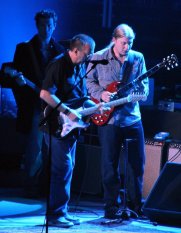
Yeah,
there are a lot of ways to make a career.
Let
me ask you, when you are on stage playing with Eric, what do you hear from him
that feeds into you and that you have taken away?
A
few things really impressed me that I didn’t quite realise and one was the
consistency from night to night. I just don’t remember him having an off night.
Some nights were more inspired and some more fiery, but the bar was set
consistently high and that’s what we all strive for, but not everybody gets
there. And that was impressive.
But
also he had that old r’n’b thing of always leaving the crowd wanting more.
There was a very reserved part of his playing that I grew to enjoy. You never
felt you heard everything he could do but there was always something in the
backpocket. It was there if he needed it, but I learned that sometimes you don’t
have to show all your cards. That has carried over into my playing.
I’ve
seen some internet comments about Already Free and some people wanted to
hear more guitar plastered all over it. You’d understand that people just want
to hear more of your guitar work?
Yeah,
but you realise that you can never please everybody. This record I wanted to do
differently and didn’t want to be a complete ‘guitar record‘. I think there’s a
lot of great solo sections on it, and on every song I wanted some small
showcase -- but I didn’t want that to be the sole purpose of the album. It was
much more about the songwriting process and what we creating in the studio --
and creating a sound.
It
feels like a very strong collection of songs. And a fantastic version of Dylan’s
Down in the Flood too. But the one I like particularly is Down Don’t
Bother Me.
That’s
a really nice tune and that’s one that [singer] Mike Mattison brought to the
band. Maybe four or five years ago we played it live half a dozen times and
there was something about it I loved, but also something that seemed
unfinished. So it got shelved for a while and while we were in the studio we
rewrote the chorus and instantly it came alive.
All
the other tunes we recorded a handful of time and we had them. We’d add what we
needed like extra guitar or vocals, but the tracks went down easily. But with
that tune we worked on it for a day and it didn’t seem right so once again we
shelved it and didn’t think it would make the record.
But
they were filming the making of the album and we had to perform a live tune for
the cameras, and it dawned on me that maybe we should set up to record just in
case we got a great performance, and that ended up being the track that is on
the record.
Maybe
the fact that song was born on stage being performed live meant that it had to
be done just that way for the album. It has that live feel.
John
McLaughlin says the thing about inspiration is that it doesn’t hit you all the
time, but you need to be open for it -- and that’s the hardest lesson to learn.
Yeah,
and that’s the one thing I recognised this time in the studio, just be ready
and always have the mikes on because you never know when something great is
going to happen, or when a song idea will happen.
The
tune Back Where I Started on the album came when I as lying in bed with
my wife and kids and we were trying to put the kids to sleep. They were really
rambunctious that night so I took the guitar and laying on my back was thinking
about a Ritchie Havens lullaby. And it hit me and I thought, ’grab your
cellphone and call yourself, it could mean something’. And the next day when I
went to the studio and tracked it, it just seemed right.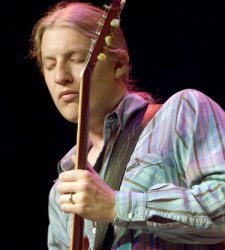
I
know you are touring in the States heavily in the next few months of course,
but any possibility of you coming down this way? I know you were in Australia
recently.
Yeah, and we met a promoter from New Zealand and were talking about trying to get over. I‘m really hoping it happens. We were only there for a brief time on the Clapton tour but me and [singer] Doyle Bramhall rented a car and just drove because we wanted to see as much as we could because it is such a beautiful country. So I’m anxious to get back, hopefully playing -- but if not just come visit with my kids.
Like this? Then check out the interviews, reviews and overviews at Blues in Elsewhere.

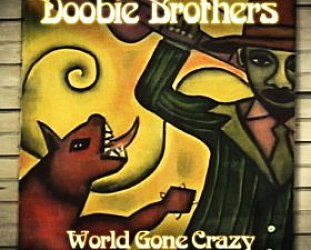
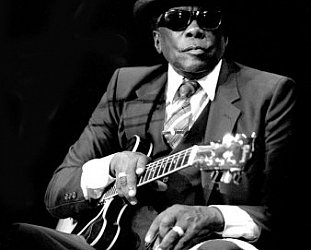
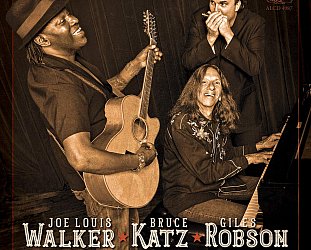
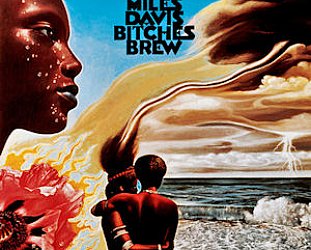
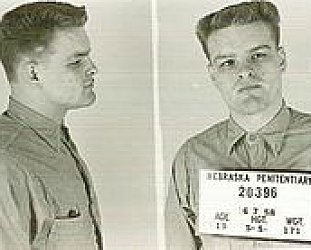
Tony Stephens - May 5, 2009
Hi
SaveThanks for the interview. Glad to see I am not the only dTb fan in NZ.
I have in fact been a fan for about 10 years now and missed them since moving here two years ago.
I am a schoolmate of dTb band member Kofi Burbridge and have managed to catch up with him now and again when I caugth a show. I too will keep plugging away to get them to New Zealand. Hopefully even to the South Island if possible/ It is expensive to have to travel even to Wellington for shows.
As for the interview itself I especially enjoyed some of the questions on getting on stage with Clapton and how one sets their mind as to what to bring to those situations in terms of musicianship.
I also enjoyed reading about recording himself as he played for his kids late one night and that turning into a track on the album.
Thanks,
Tony
Ralph Tyrrell - Sep 19, 2011
Saw Mr Trucks at the Clapton show in Napier. Hadn't heard seen him before ever. And after a short time it was "who is this guy?". As the show went on it just got better. What a player. And alongside Clapton and Bramhill junior he was the standout muscian on the night. Couldn't g enough of him.
Savepost a comment